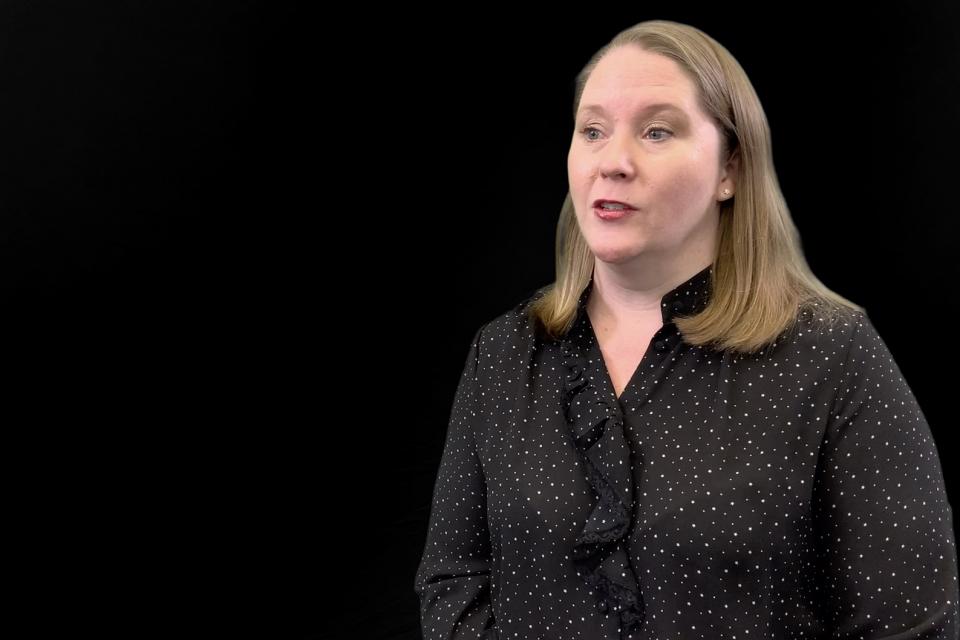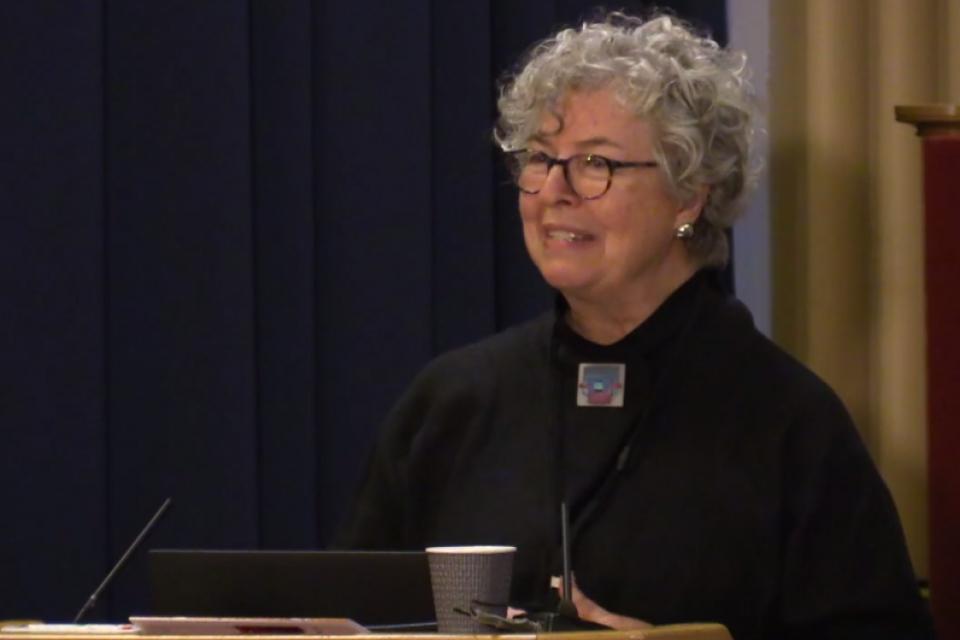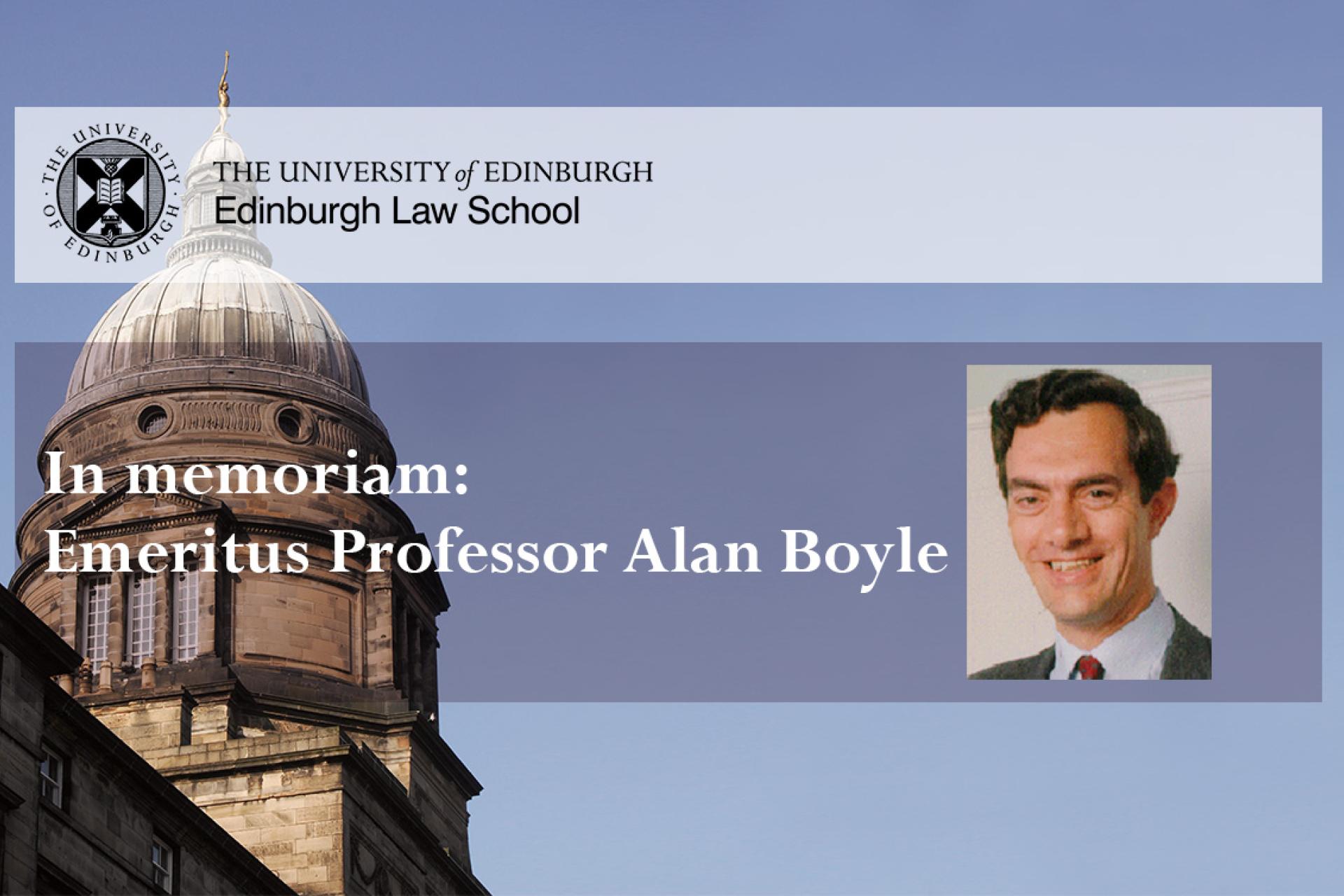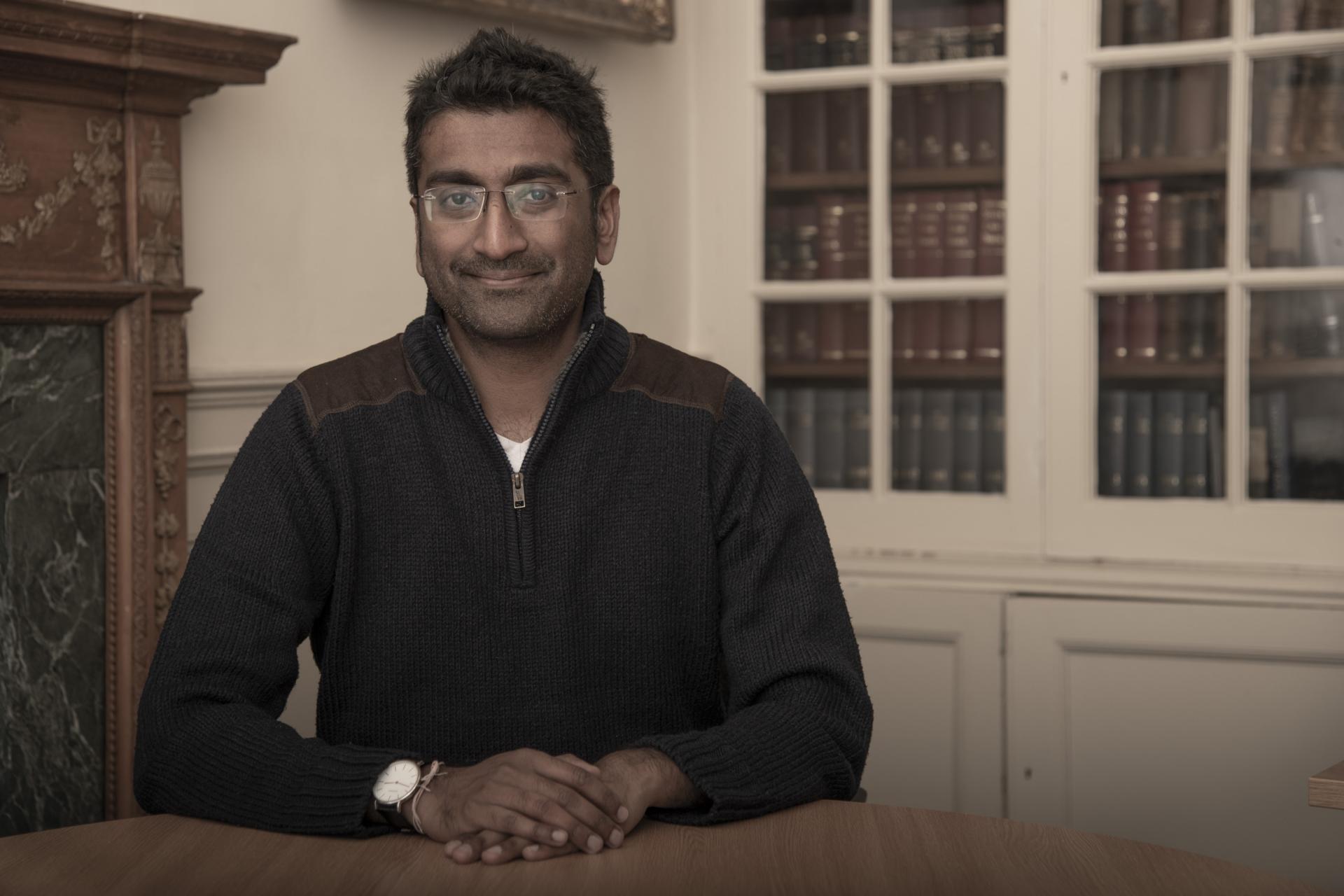Public International Law
The public international law research area is a lively community of critical thinking, legal expertise, and theoretical reflection at Edinburgh Law School.

The research area brings together accomplished scholars and experts bridging a wide span of contemporary international law, including global environmental law, international legal theory, the history of international law, international economic law, human rights, international criminal law, maritime law, and the laws of war.
We offer courses across all these areas, and maintain a busy schedule of public events on contemporary and historical issues in international and global law.
Paul Behrens, Reader in Law
Nehal Bhuta, Chair of Public International Law
Michelle Burgis-Kasthala, Senior Lecturer in Public International Law
Ana Maria Daza Vargas, Lecturer in International Law
Deval Desai, Lecturer in International Economic Law
Andrew Farrer, Teaching Fellow in EU Law
Filippo Fontanelli, Senior Lecturer in International Economic Law
James Harrison, Chair of Environmental Law
Andrew Lang, Chair in International Law and Global Governance
Dalia Malek, Early Career Fellow in International Law (Human Rights)
Kasey McCall-Smith, Senior Lecturer in Public International Law
Stephen Neff, Professor of War and Peace
Michael Picard, Lecturer in International Environmental Law
Gavin Sullivan, Reader in International Human Rights Law
Journal articles
British contributions to law of the sea, the environment and natural resources
Boyle, Alan; Harrison, James. In: British Yearbook of International Law, 02.05.2023, p. 1-15. View article
Law and the political stakes of global crises: Lessons from development practice for a coronavirus world
Desai, D. In: Law & Policy, 18.01.2023. View article
The law of UK trade with the EU and the world after Brexit
Fontanelli, F. In: King's Law Journal, Vol. 34, No.1, 12.03.2023. View article
Time for justice? Reflections on narrative absences and presences in the Special Tribunal for Lebanon’s Ayyash decision
Burgis-Kasthala, M. In: European Journal of International Law, 30.01.2023, p. 1-30. View article
Virtual borders – International law and the elusive inequalities of algorithmic association
Van Den Meerssche, Dimitri. NYU - IILJ, 2021. (IILJ Working Paper 2021/2). View article
Against coloniality in the international law curriculum : Examining decoloniality
Burgis-Kasthala, Michelle; Schwoebel-Patel, Christine. In: The Law Teacher, 26.04.2022. View article
Good better best? Human rights impact assessment in crisis lawmaking
McCall-Smith, Kasey. In: The International Journal of Human Rights, 30.03.2022. View article
Good better best? Human rights impact assessment in crisis lawmaking
McCall-Smith, Kasey. In: The International Journal of Human Rights, 30.03.2022. View article
Law, technology and data-driven security : Infra-legalities as method assemblage
Sullivan, Gavin. In: Journal of Law and Society, 31.03.2022. View article
A Thousand Flowers Blooming or the Desert of the Real? International Law and its Many Problems of History
Bhuta, Nehal. In: Anne Peters and Randall Lesaffer, eds, The Cambridge History of International Law, Volume 1, 2022. View article
Making rights real through human rights incorporation
McCall-Smith, Kasey. In: Edinburgh Law Review, Vol. 26, No. 1, 25.01.2022, p. 87-93. View article
Assessing the compatibility of vehicle electrification with the EU’s circular economy objective
Danthinne, Audrey ; Picard, Michael. In: European Energy and Environmental Law Review, Vol. 31, No. 6, 12.2022, p. 394-404. View article
Book chapters
Constitutional law and secession in Spain
Casanas Adam, Elisenda. The Routledge Handbook of Self-Determination and Secession. ed. / Ryan D. Griffiths; Aleksandar Pavković; Peter Radan. 1st. ed. London: Routledge, 2023, p. 604-616. View chapter
Compliance mechanisms under treaties relating to protection of the marine environment
Harrison, James. Research Handbook on International Marine Environmental Law. ed. / Rosemary Rayfuse; Aline Jaeckel; Natalie Klein; Ben Milligan. 2. ed. Edward Elgar, 2023, p. 104-123. View chapter
States of criminality: International (criminal) law, Palestine, and the sovereignty trap
Burgis-Kasthala, M., Samour, N. & Schwoebel-Patel, C. International Criminal Law—A Counter-Hegemonic Project?. International Criminal Justice Series. ed. / F Jeßberger, L Steinl & K Mehta. T.M.C. Asser Press. 2022, p. 111-133. View chapter
The transnationalization of legal education on the periphery : Continuities and changes in colonial logics for a “Globalizing” Africa
Burgis-Kasthala, Michelle. The Globalization of Legal Education: A Critical Perspective. ed. / Bryant Garth; Gregory Shaffer. Oxford University Press, 2022. p. 123-156. View chapter
Alternative and Additional Dispute Settlement Proceedings
Fontanelli, F. & Sthoeger, e. In: Research Handbook on International Procedural Law, J Gomula and S Wittich (eds) Elgar 2022 (in print).
Article XIII GATS
Fontanelli, Filippo. In: Commentary on World Trade Law P-T Stoll and H Hestermeyer (eds), Brill 2022 (in print). View chapter
Protection of property from acts of public authorities under the international law on promotion and protection of foreign investments
Fontanelli, Filippo, In: Procedural Requirements for Administrative Limits to Property Rights 83-87, 109-110, 123-124, 140-141, 157-159, 188-189, 200-202, 218-219, 233-234, 244, 257-262 M Conticelli, T Perroud (eds), Oxford University Press 2022. View chapter
States of criminality : International (criminal) law, Palestine, and the sovereignty trap
Burgis-Kasthala, Michelle; Samour, Nahed; Schwoebel-Patel, Christine. International Criminal Law—A Counter-Hegemonic Project?. ed. / Florian Jeßberger; Leonie Steinl; Kalika Mehta. 1st. ed. T.M.C. Asser Press, 2022. p. 111-133 (International Criminal Justice Series). View chapter
Checks and balances on the regulatory powers of the International Seabed Authority
Harrison, James. The United Nations Convention on the Law of the Sea, Part XI Regime and the International Seabed Authority: A Twenty-Five Year Journey. ed. / Alfonso Ascencio-Herrera; Myron H. Nordquist. Brill, 2022. p. 151-173. View chapter
Dangerous Proportions: Means and Ends in Non-Finite War
Bhuta, Nehal & Mignot-Mahdavi, Rebecca. In: The Struggle for Human Rights: Essays in honour of Philip Alston. Bhuta et al, Oxford University Press, 2022. View chapter
States of criminality : International (criminal) law, Palestine, and the sovereignty trap
Burgis-Kasthala, Michelle; Samour, Nahed; Schwoebel-Patel, Christine. International Criminal Law—A Counter-Hegemonic Project?. ed. / Florian Jeßberger; Leonie Steinl; Kalika Mehta. 1st. ed. T.M.C. Asser Press, 2022. p. 111-133 (International Criminal Justice Series). View chapter
Nehal Bhuta
Nehal Bhuta is developing three workshops on Artificial Intelligence and the Rule of International Law: AI on the Battlefield, AI and the Digital Welfare State, and AI and Border Control. He has assembled an interdisciplinary group from Law, Philosophy, Sociology and Informatics and has applied for a new Carnegie Trust for the Universities of Scotland Workshop Grant. The aim of the workshop is to develop an international research network leading to a major Research Centre grant application addressing the following questions: Can essential global legal rules be “programmed in to AI systems to which decisions are delegated? What is the role of the human in interacting with the AI system? Can we design human-machine interactions in these contexts which improves legality? Can we envisage accountability for errors where the reasoning process of the AI System maybe undiscoverable?
Nehal Bhuta undertakes intellectual history research on the history of the concept of the state in international law, and the relationship between various state theories and theories of sovereignty and international order. This connects to an ongoing interest in the production and maintenance of political order at the state and sub-state level, and the various ways in which contemporary international law embeds, reproduces and performs these concepts of ordering, and claims of knowledge about how to produce and maintain these orders.
Michelle Burgis-Kasthala
Michelle Burgis-Kasthala’s project, The Privatisation of International Criminal Justice for Syria and Beyond, builds on extensive interviews and fieldwork conducted with the Commission for International Justice and Accountability and planned interviews with the UN’s Independent, Impartial Investigative Mechanism in June. The project seeks to identify the role of key public and private actors working towards the criminalisation of Syria’s civil war. To date, I have written two articles on this, both of which are under review. In the future, I plan to write specific pieces on the nature of extant archives generated as well as the relationship between international criminal justice and statebuilding. Further into the future, there may be scope for considering the phenomenon of privatised international criminal justice more broadly through a number of case studies.
Michelle Burgis-Kasthala’s future project, Building a State in Palestine through International Criminal Law?, builds on a sustained interest and expertise of mine in Palestine as well as a range of preliminary interviews and fieldwork. The project seeks to place Palestine’s current reliance on international criminal law within broader practices of statebuilding and various legal interventions.
Deval Desai
Deval Desai works in the field of administrative law and regulation, with an emphasis on the Global South. He is currently undertaking a project entitled, Reversing the Gaze, in collaboration with colleagues from the Universities of Zurich and Basel, and funded by the Swiss National Science Foundation. The research explores the possibility of analysing political phenomena, such as the administrative state, by applying concepts derived from the Global South in the Global North – rather than the inverse, as is so often the case. This project develops his earlier work on the comparative knowledge and practices of legal experts in development, and engages with debates on decolonisation and methodological politics.
Deval Desai also has an ongoing project supported by the Swiss National Science Foundation on the administration of social welfare funds and their implications for theories of the state. Drawing on the cases of India and Italy, the project studies the drives and effects of the hundreds of billions of dollars of earmarked welfare funds that have remained unspent and unappropriated. It examines the governance practices, sociopolitical contexts, and institutional designs that give rise to this phenomenon. Drawing on administrative law and fiscal sociology, it enquires into the limits of extant state theories in explaining a state that collects resources but does not spend them.
Filippo Fontanelli
Filippo Fontanelli’s current research concerns the EU Charter’s Application to National Measures.
The Charter applies to national measures implementing EU law, and thus can serve as standard of review for their legality. In the ten years since the Lisbon Treaty came into force, this scenario has never arisen. The Charter has been used, occasionally, to declare the unlawfulness only of domestic measures that also violated other rules of EU law. Arguably, for all the lip-service to the member states’ responsibility to observe human rights when they act as agents of the EU, the Court of Justice has been upholding a tacit pact. The Charter shall not be used to restrict member states’ action, and the mechanism of Art. 51 is effectively an empty promise.
Filippo Fontanelli is also working on two other projects:
Jurisdiction and Admissibility in Investment Arbitration – a New Framework. In investment arbitration, the line between jurisdiction and admissibility is blurred. Objections going to the tribunal’s power or the claim’s inadmissibility are hard to distinguish. My work seeks to show, through a theoretical reconstruction of the two notions, the correct test that tribunals should use to tell them apart. More importantly, it shows the practical implications of the distinction, demystifying some received views that often go unchallenged.
Can the fictio of EU law as fact save the EU from isolation? This research chronicles and assesses how the fictio of treating law as fact has come back into style to keep EU law from isolating itself. The thread of Opinion 1/91, Mox Plant, Opinion 1/09, Opinion 2/13 and Achmea makes it difficult to come up with any hypothetical scenario in which the Court of Justice of the European Union could allow other judicial bodies to handle EU law. The Advocate General’s views in Opinion 1/17 apparently validate CETA’s drafting tactic to distinguish expressly between law-as-law and law-as-fact, a strategy that might have spared WTO from the CJEU’s wrath. The Withdrawal Agreement (R.I.P.) stayed away from the fictio and foreshadowed a 2/13-like fiasco. This research exposes the nature and function of this device. Arguably, it is more reassuring than necessary, but it might just work.
James Harrison
One of James Harrison’s current projects is called 'Save our Seas through Law (SOS-LAW) – Strengthening the UK legal framework for the Protection of the Marine Environment’ and it is a collaboration with the Community of Arran Seabed Trust, looking at contemporary challenges with MPA governance in Scotland. The research draws upon relevant international law and best practices in order to critically analyse the current Scottish/UK legal framework for MPA designation and management. The project is funded by a College Impact and Knowledge Exchange Grant.
James Harrison’s other main project looks at legal reform of inshore fisheries governance in Scotland. I am carrying out this work in collaboration with the Sustainable Inshore Fisheries Trust and we are developing a case for substantial reform to the current legal framework for managing inshore fisheries. The project has both institutional and a substantive components to it. My longer terms plans are to broaden this research to look at fisheries governance more generally, with a particular focus on the North-East Atlantic.
Andrew Lang
Andrew Lang has a number of projects in the field of global regulatory governance. He is currently undertaking a project on the history and evolution of the regulatory policy of the OECD, and its significance in the emergence of regulatory infrastructures for the global economy. This develops his earlier work on the regulatory impacts of international trade and investment law, which remains an important focus. It is also part of a broader strand of research re-thinking the nature and content of ‘neoliberalism’ as a politically diverse set of political practices, frames and habits of thought, across various domains of global economic governance.
Andrew Lang also has a more specific research focus on international trade in financial services and other professional services. He has recently completed a commentary on the financial services provisions of the General Agreement on Trade in Services. He also has an additional project looking at the governance of mutual recognition agreements, with an initial focus on MRAs in the financial services sector.
Andrew Lang also has a recently completed project looking at the rise of heterodox capitalisms in the global economic order since the 1990s. The immediate impetus for the project is the current trade tensions between the US and China, which to a significant extent have their roots in the emergence of what has been called ‘Sino-capitalism’, a capitalist form (or combination of forms) which has some familiar aspects from other East Asian economies, and some which are not at all familiar. It is common to describe some of China’s practices and structures as ‘distorting’ global markets, and more generally to use the concept of a ‘market distortion’ to attempt to distinguish legitimate from illegitimate variation in the institutions of market capitalism. This paper elucidates some of the conceptual difficulties associated with that term, and assesses four potential ways in which it may nevertheless become legally and practically functional for this purpose.
Kasey McCall-Smith
Kasey McCall Smith’s current research project 'Torture on Trial' examines the legal framework ensuring the complete prohibition against torture in an under-examined trial setting. The 2014 Senate Torture Report confirmed that many men detained in Guantanamo were tortured during the highly controversial US anti-terrorism campaigns. Five of these men are on trial in relation to the 11 September 2001 terrorist attacks on the US in the KSM trial. The military commission tasked with hearing these charges is proceeding in Guantanamo where the defendants have been held under the laws of war as suspected terrorists for over 15 years. Specifically, the project examines whether violations of the rules prohibiting torture impact a trial in real-time. Fundamentally, the project seeks to reaffirm that maintaining the prohibition against torture far outweighs arguments for allowing exceptions to the rule.
Kasey McCall Smith’s next major project aims to develop the terminology and approaches to the incorporation of human rights treaties in national legal systems. Following on from an article I published this year looking at the incorporation of children's rights, my preliminary findings were that there is little common ground upon which a basis for discussion about the incorporation of international law can be framed. A coherent reference framework is necessary in order to better facilitate discussions in various contexts, including political discourse, law and policy development and civil society engagement with government organs.
Gavin Sullivan
Gavin Sullivan joined Edinburgh Law School in February 2021 as Reader in International Human Rights Law. He was previously a Senior Lecturer in Law at the University of Kent (2016 – 2020) and was awarded his PhD (cum laude) from the University of Amsterdam. Gavin’s research focuses on the politics of global security law, technology and rights using socio-legal and ethnographic methods. His research interests include international organisations and collective security; algorithmic governance, accountability and international human rights; transnational and informal law, global pluralism and constitutionalism; counterterrorism and preemptive security. In 2020 Gavin was awarded a UKRI Future Leaders Fellowship for his socio-legal research project, Infra-Legalities: Global Security Infrastructures, Artificial Intelligence and International Law (2021 – 2028). He leads an interdisciplinary team of scholars in international law, anthropology, socio-legal studies, computer science and security studies to examine how AI-led security, and the data infrastructures that sustain it, are reshaping global security law, rights and accountability and security decision-making. He is joined in this project by Postdoctoral Research Fellow, Dr. Dimitri Van Den Meerssche.
Gavin Sullivan is a practising solicitor with advocacy experience in public law, environmental law, international human rights and global security law. Since 2010 he has provided pro bono representation to people targeted by security lists worldwide, including before the UN Office of the Ombudsperson. Gavin has worked widely as an expert consultant on counterterrorism issues, including for the UN Office of the High Commissioner for Human Rights. He is a member of the ‘Transparency’ and ‘Legal Frameworks’ working groups of the Global Internet Forum to Counter Terrorism, co-covenor of the ESIL International Law and Technology Interest Group and on the Editorial Committee of the journal, Transnational Legal Theory. Gavin’s book - The Law of the List: UN Counterterrorism Sanctions and the Politics of Global Security Law (Cambridge University Press, 2020) – was awarded the 2021 International Studies Association STAIR Book Award for research bringing STS into dialogue with global politics, and the 2020 International Studies Association ILAW Book Award for research that makes an outstanding contributions to the field of international law.
Rebecca Sutton
Rebecca Sutton’s current research, funded by the Leverhulme Trust, investigates the role of emotions in ‘everyday’ International Humanitarian Law. This project seeks to uncover IHL's human component, exploring the emotional life and perceptual judgements of those who are expected to enact law in war. The first strand of the project examines the interplay of law and emotions in humanitarian negotiations, and the output will be an article in a generalist international law journal. The second strand explores the role of individual and collective emotions in IHL pedagogy. The outputs for this strand include co-authored articles on empathy in IHL training (with Emily Paddon Rhoads) and student emotions at the Jean Pictet IHL role-play competition (with Emiliano Buis). Rebecca’s first book is currently in production with OUP, due out in early 2021. It is entitled The Humanitarian Civilian: How the Idea of Distinction Circulates Within and Beyond International Humanitarian Law. Bringing some of her new research on emotions into the classroom, Rebecca is also piloting a module on Emotional Intelligence with LLM students in 2020 at Edinburgh Law School.
Rebecca Sutton’s future research builds on a new initiative that she has been piloting since 2019, entitled ‘Participatory Action Research’ in Conflict and Displacement Settings. This project explores the emancipatory possibilities and potential pitfalls of conducting 'participatory action research' with young people who are affected by armed conflict or displacement. Since the outbreak of the covid-19 pandemic, Rebecca has been working with Rohingya researchers based in Cox’s Bazar camps to train and support them in executing their own research projects.Rebecca’s Leverhulme project further includes an innovative pedagogical component, which involves partnering with practitioner organizations to develop bespoke legal trainings. The main output of this strand of Leverhulme research will be practical training advice for frontline practitioners.
Dimitri Van Den Meerssche
Dimitri Van Den Meerssche’s research focuses on how digital technologies alter, disable or disrupt international legal norms and practices. He works as a Research Fellow for the UKRI-funded project Infra-Legalities: Global Security Infrastructures, Artificial Intelligence and International Law, where his specific current focus is on systems of algorithmic risk classification at the border. The aim of this project is to rethink global security governance by focusing on its material infrastructures and socio-technical settings – an approach inspired by science and technology studies and actor-network theory. In the context of this research agenda, Dimitri Van Den Meerssche also co-organizes the workshops on Artificial Intelligence and the International Rule of Law (a project led by professor Nehal Bhuta). In the next three years, Dimitri will be conducting ethnographic research in different sites of security governance – following the actants enrolled in and affected by its contemporary data infrastructures.
Dimitri Van Den Meerssche’s research on changing rationalities and techniques of governance also entails an engagement with problems of method(ology) and prospects of critique. In this light, he is currently convening a special issue on New Ways of Seeing Like a State – On the Problem of Critique in Global Governance, which takes on the invitation by professor Fleur Johns to reconsider and revisit the traditional tropes of critique in international legal theory.
Dimitri Van Den Meerssche is also still engaged in a research project on international organizations law – the law of the World Bank in particular. He is currently finalising a monograph – The World Bank’s Lawyers: The Life of International Law as Institutional Practice (under contract with Oxford University Press) – that provides a practice-based account of changes in the practice and politics of law within this institutional space.
Michael Picard
Michael Picard investigates the laws regulating the sources, pathways and sinks of industrial pollution. Why is it that alongside the growth of international environmental law, there has been a growth in global industrial pollution? In approaching this puzzle, Michael Picard examines the legal architecture of transnational corporate governance in its relationship to regimes of waste management. Michael Picard is also interested in the role of ignorance in international law. How does international law alternatively reproduce and resist (the manufacturing of) State blindness towards ecological hazard?
Ana Maria Daza Vargas
Ana Maria Daza Varga’s current work is concerned with mapping conflict around water resources in investor-state dispute settlement: Creating a database of all water-related investor-state arbitration disputes (ongoing) – classification under a typology of water usage and allocation. The typology divides investment disputes according to the economic activity that may trigger the conflict: trade in water; water services and sanitation; and water for industry. The first output using this database is a paper ‘Water is the new water: Mapping conflict around water resources in investor-state dispute settlement’.
Ana Maria Daza Varga is also writing a paper on the Defense Burden in Investment Treaty Arbitration: An Empirical assessment of Costs, Capacity and Solutions’: Using the database of PITAD (Pluricourts – Oslo University), this paper seeks to: i) identify the costs that respondent states have collectively incurred in defending against investment treaty claims; and ii) determine the state-of-the-art regarding the degrees to which a respondent state’s defense burden in investment treaty arbitration might be considered to actually exist.
Stephen Neff
Stephen Neff current research projects are two: (1) a book on the history of natural-law thought; and (2) Oversight (as a general editor) of the Cambridge History of International Law. Regarding the Cambridge History, I am also the editor of one of the individual volumes (covering the period 1870-1920), in addition to being on the board of editors for the project as a whole.
Edinburgh Centre for International and Global Law
The Edinburgh Centre for International and Global Law addresses contemporary international and global questions through both fundamental research and practical policy engagement.
Visit the Edinburgh Centre for International and Global Law website
Global Justice Academy
The Global Justice Academy is an interdisciplinary research network at the University of Edinburgh and beyond exploring global justice in its broadest sense.
Visit the Global Justice Academy website








